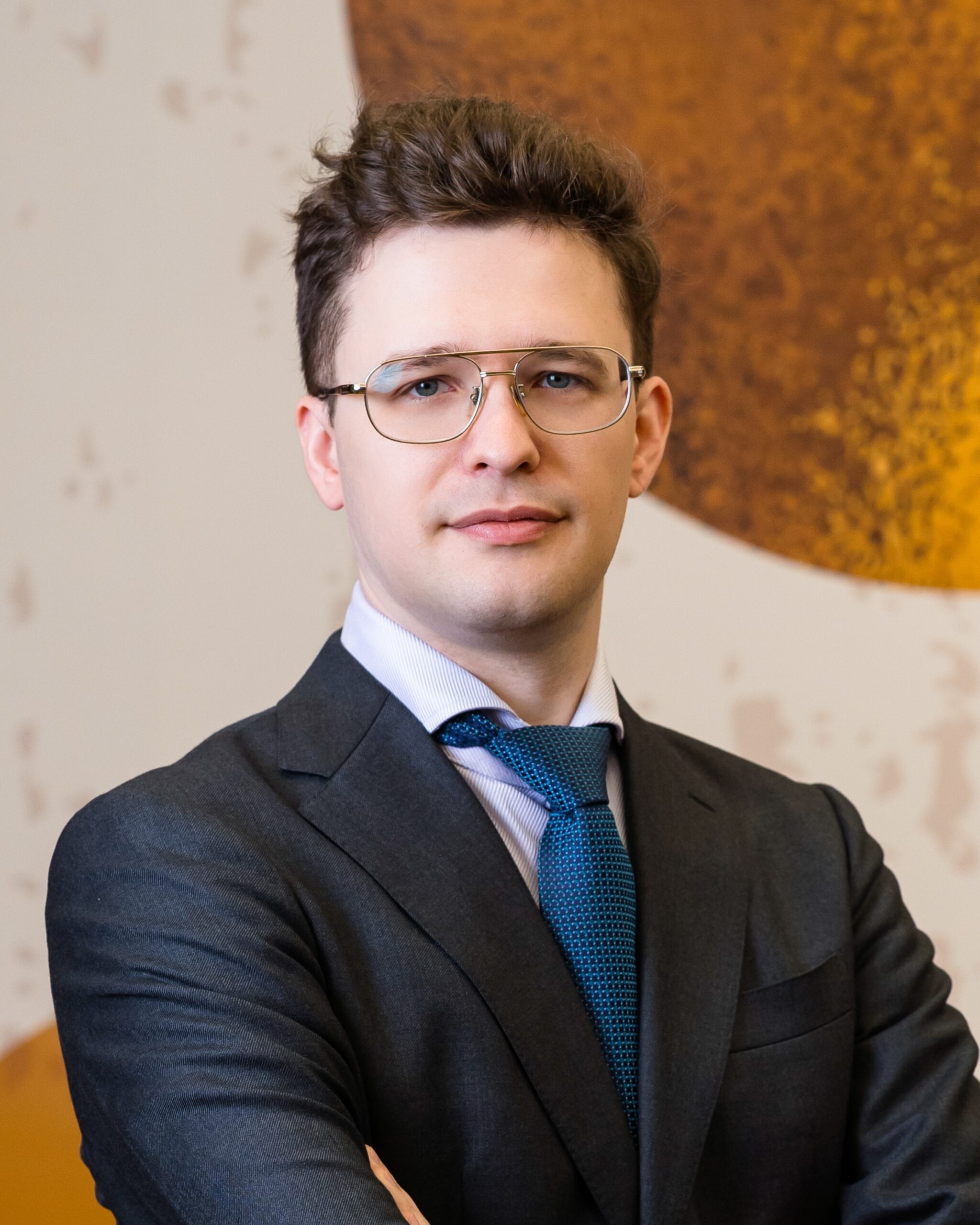
Asst Prof Alexander VINOGRADOV

Assistant Professor Alexander VINOGRADOV
M.Sc. in Organic Chemistry, Moscow State University, Moscow, Russia
Ph.D. in Biological Chemistry, Massachusetts Institute of Technology, Cambridge, MA, US
Department of Pharmacy and Pharmaceutical Sciences, National University of Singapore
18 Science Drive 4, Singapore 117543
Tel: +65 6601 1393
Fax: +65 6779 1554
Email: vngrdv@nus.edu.sg
Research website
|
Dec 2024 ‒
|
Presidential Young Professor |
|
2019 ‒ 2024 |
Project Assistant Professor |
|
2017 ‒ 2019 |
Postdoctoral Research Associate |
|
2012 ‒ 2017 |
Ph.D. in Biological Chemistry |
|
2007 ‒ 2012 |
M.Sc. in Organic Chemistry Moscow State University Moscow, Russia |
- Vinogradov,* G. Bashiri, and H. Suga.* Illuminating substrate preferences of promiscuous F420H2-dependent dehydroamino acid reductases with 4-track messenger RNA display. J. Am. Chem. Soc. 2024, 2024, 146, 31124–31136.
- Vinogradov,†,* Y. Zhang,† K. Hamada, S. Kobayashi, K. Ogata, T. Sengoku, Y. Goto,* and H. Suga*. A Compact Reprogrammed Genetic Code for de Novo Discovery of Proteolytically Stable Thiopeptides. J. Am. Chem. Soc. 2024, 146, 8058−8070. †: co-first authors
- Chang, A. Vinogradov,* Y. Zhang, Y. Goto,* and H. Suga.* Deep Learning-Driven Library Design for the De Novo Discovery of Bioactive Thiopeptides. ACS Cent. Sci. 2023, 9, 2150−2160.
- Vinogradov, Y. Zhang, K. Hamada, J. Chang, C. Okada, H. Nishimura, N. Terasaka, Y. Goto,* K. Ogata, T. Sengoku, H. Onaka, and H. Suga.* De Novo Discovery of Thiopeptide Pseudo-natural Products Acting as Potent and Selective TNIK Kinase Inhibitors. J. Am. Chem. Soc. 2022, 144, 20332−20341.
- Vinogradov,† M. Shimomura,† Y. Goto,‡ T. Ozaki, S. Asamizu, Y. Sugai, H. Suga,* and H. Onaka.* Minimal lactazole scaffold for in vitro thiopeptide bioengineering. Nat. Commun. 2020, 11, 2272. †: co-first authors
We are developing a general experimental platform for ultra-high-throughput analysis of enzymatic catalysis and the computational techniques to analyze the resulting data. We then use the findings to make practical advances in the areas of drug discovery, natural product engineering, and human cell biology.
Enzymatic post-translational modification (PTM) of peptides and proteins is a ubiquitous process critical in many biological contexts. For example, dissecting the enzymology of PTM processes is key to unravelling the complexities of human cell biology. Likewise, the biosynthesis of many biologically active secondary metabolites in bacteria, fungi and plants is underpinned by PTM enzymes. Understanding their mode of action and substrate preferences enables natural product engineering applications to develop drug-like compounds with enhanced biological activities and metabolic stabilities for use in drug discovery.
Traditional methods to study PTM enzymes are labor-intensive and time-consuming. We are developing mRNA display-based pipelines to streamline this process and conduct ultra-large-scale single-shot profiling of PTM enzymes. We leverage next-generation sequencing and deep learning/AI to construct accurate models of substrate fitness for the enzymes of interest, understand the dynamics of substrate engagement, and dissect their catalytic mechanisms.
We deploy such deep learning models to design new-to-nature hybrid biosynthetic pathways, to construct innovative de novo drug discovery platforms, or to annotate cellular substrates for human PTM enzymes. Ultimately, we aim to translate the insights from mRNA display profiling workflows into actionable advances in drug discovery and cell biology.
A complete publication list can be found here.
